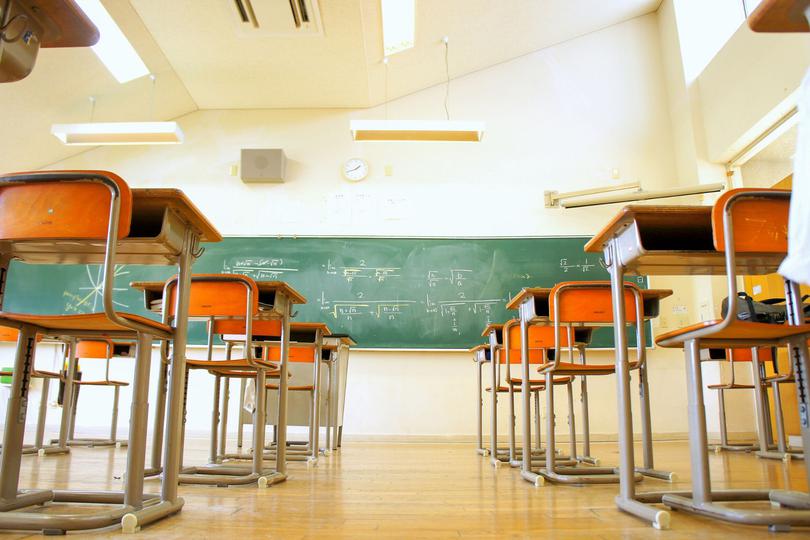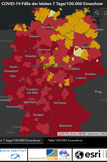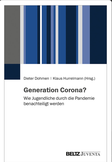On the decision of the Standing Conference of the Ministers of Culture and Education
With butter-soft formulations for regular school use after the summer holidays
In the last three months, i.e. since the beginning of the Corona crisis, the ministers of education and cultural affairs, as well as the Standing Conference of the Ministers of Education and Cultural Affairs of the Länder in the Federal Republic of Germany, have not presented a convincing picture - and this does not change even with the current decision. With partly butter-soft and stretchy formulations, they want to give the impression that regular lessons can take place in the coming school year.

In concrete terms this means that all pupils will return to school as normal. Classes and groups should be taught as provided for in the timetable, but it is still unclear how this can be achieved and what the prerequisites are for this to happen. If one reads the decision, many questions remain open - concrete concepts are still missing
The KMK wants to force regular operation under all circumstances
Just as a reminder: even without the Corona crisis, there is a shortage of teachers in almost all German states; how many there are depends on whether you ask the ministries of education, the trade unions or other educational prognoses, such as those of FiBS. This gap will increase in corona times in all federal states - depending on the proportion of teachers with risk factors. These include age, but also previous illnesses - including risk persons among close relatives. The tightening of the conditions for certificates only helps superficially.
The risk situation for both pupils and teachers will be aggravated if the distance rules were really to be abolished or lifted. Again, as a reminder, neither the Robert Koch Institute nor the Conference of Minister Presidents has abolished this distance rule. In other words, it continues to apply in all other areas against the background of the increased health risk in the event of non-compliance. It is not understandable why it should be lifted in schools of all places. The only reason is apparently to want to force regular operation under all circumstances.
School without distance rules is a risk game for all involved
It is still unclear how great the risk of infection, disease and transmission among children of different ages really is. Although it now seems likely that the risk is lower for children (than for adults), it is significantly higher for older children (i.e. those over ten years old) than for younger children, although it should be noted that the underlying studies have to divide children into age groups, and thus seem to show a sudden increase. In fact, however, the risk increases with every year. This means that it is higher for nine year old children than for eight year old children. The corona cases among day-care and school children as well as the occasional renewed class or school closures, not only in Göttingen and Gütersloh, are a clear indication of existing risks - even if in almost all cases it is pointed out that the infection did not occur at school. Even if this were to be the case so far - who would bear responsibility if the first superspreaders were available in a school? I am curious to see what reasons are then sought to reject this responsibility.
Against this background, not only the trade unions and teachers' associations consider the announcement that the distance regulations should not apply to be wrong, but also the chairman of the Federal Parents' Council, Stefan Wassmuth, expressed himself accordingly. It is statistically compelling that the risk of transmission increases significantly with increasing group or class size. If there is an infectious disease, it is not 10 or 15 fellow pupils who are threatened, but 30. If there are normal lessons according to the timetable, this also means that teachers can have up to three or four classes per day, i.e. if a teacher is infected, up to 100 pupils are threatened in extreme cases.
In the current case with a high incidence of infection in Neukölln, one sick priest or minister was probably enough to start the chain and identify a total of over a hundred people. The current relief of many parents that their children can go back to school would probably turn into annoyance at the latest when they have to go into quarantine and cannot fulfil their professional duties or even fall ill.
Germany is a digital developing country in the education system
With this decision, the ministers of education and culture are taking a high risk: if they are lucky and there are no major waves of infection, then this risk has paid off. In fact, however, it is also a fact that they hardly had any other chance - the schools are far too badly positioned in the area of digitalisation and distance learning, but also in teacher training and further education, to be able to guarantee even halfway regular teaching.
Although the digitisation of the school system has been on the agenda for over twenty years, most schools in Germany are still completely under-equipped. Germany is a developing country when it comes to school digitisation. Developments since the beginning of the crisis have been insufficient and far too hesitant. The ministries of education seem to me to be frozen. Although a few devices have been procured here and there for children from disadvantaged families, and a few euros have been scraped together there for the digital equipment of schools, there has not yet been any real momentum for comprehensive school equipment. How is it now possible to obtain over a million devices over the summer holidays so that all pupils are provided for at the beginning of the coming school year? This means that in the coming school year, too, the prerequisites for digital teaching, instead of the previous distance learning, will not be met. If this continues for a long time to come, German pupils will certainly not acquire their digital competence at school - unlike in other countries. In other words, trainees in the dual system and first-year students at universities will lack the central skills needed to keep up in a digitised working world. Germany is jeopardising its economically strong position because of the far too slow procurement processes.
In teacher training, too, the ministers of education reacted far too late to the emerging demographic change. While for a long time - specifically until 2012/13 - it looked as if the coming generations of pupils would become smaller and smaller, it was only in the last year of 2019 that a noticeable change in direction was initiated - and even this has so far been rather half-hearted. This means that in the foreseeable future, and possibly by the end of the 2020s, there will be a lack of sufficiently qualified teachers, including a high level of digital competence in terms of teaching design.
Unfortunately, digital literacy has apparently not been developed very much in teacher training either. A survey conducted among teachers during the Corona crisis revealed the alarming result that only 15 percent of them attest to good digital skills. This is a shameful picture and a clear indication that digitisation also plays a minor role in teacher training (and the majority of teachers do not see much need to take care of it). However, it is understandable if schools have no or only rudimentary IT equipment.
The bad starting position allows only one liberating blow
In view of this initial situation, the Conference of Ministers of Education and Cultural Affairs has little alternative but to try a rescue operation with the announced return to normal operations and to put all its eggs in one basket. If it succeeds, they will see themselves in the right, if it fails, there will have to be a chain reaction of resignations. In view of the weak position of the ministries of education in the political pecking order, as well as the ignorance and incompetence of education policy in Germany, it is doubtful, however, that even such a situation will lead to a real rethink.
Business and politics have been acting stubbornly and ignorantly for decades
Since the education offensive in the 1970s, there has been no education policy measure that has made a difference in schools and really moved Germany forward. Even the major setbacks of the past thirty years - including the poor results of the TIMSS study in 1995 or the so-called Pisa shock in 2001 - have resulted in political reform actionism, but hardly any real improvements in the education system.
Against this background, it is a real miracle that Germany - despite a mediocre education system - continues to be one of the leading countries economically. If the Corona crisis does not lead to a clear turnaround in education policy here, then for me it is only a matter of time before Germany loses this position. The gruffness and ignorance of the economy, which has almost slept through the effects of digitalization and automation, is a reflection of politics
Click Here for the complete press release of the Conference of Education Ministers on the decision of 18.6.2020.
Dr. Dieter Dohmen is an analyst, lateral thinker, visionary and, as owner and director of the FiBS Research Institute for Educational and Social Economics and managing partner of the ElternHotline gGmbH i.G (FiBS Research Institute for Education and Social Economics). also a social entrepreneur..
Published on
Topics
Articles on the topic
-
How do I find a school place for my child?
Depending on the state and type of school, different things need to be...

-
Childcare - how does it work in Germany?
The path from application to daycare place is simple and complicated at...

-
Controversy: open schools or close schools?
Politicians should react now to slide unprepared into a forced closure....

-
Corona pandemic severely disadvantages children and young people - but there is no "Corona generation"
This is a core finding of the anthology "Generation Corona? How young...

-
What to do after the Easter holidays? - Part 2: Final exams
An overview of the regulatory diversity

-
Kitas and schools in a state of flux
Update from 9.4.2021 on the current regulations
